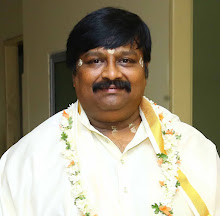
Sri Jaya Theertharu was the sixth pontiff of Sri Madhvacharya Peetha.
He was born as Dhondupant (Dhondurao) to Raghunath and Sakubai Deshpande. His birthplace is Mangalavedhe which lies near Pandharapur in today’s Maharashtra. Because he was born to a local Brahmin chieftain’s family, he had all the wealth, power, affection. He was very handsome, healthy, intelligent, endowed with physical vigor, and given to outdoor activity such as horse riding
He is believed to be the amsha of Basava and Partha
Sri Jaya Theertharu was supposed to have been born as a bull in his previous life – the bull that traveled with Sriman Madhvacharyaru carrying his library of his teachings. With such close proximity, the bull would stand and listen to Sriman Madhvacharyaru’s teachings. When some disciples approached Sriman Madhvacharyaru to seek the privilege of writing commentaries on his works he told them it would not be any of them but the bull that would get the privilege. This resulted in jealousy amongst some of the disciples and the bull being cursed by them to die of snakebite. Sriman Madhvacharyaru when he heard of this he changed the wordings of the curse such that the snake that bit the bull would die rather than the bull.
When a young Dhondupant was crossing the Bheema River once on a horseback he bent down without dismounting or even stopping the horse and drank water directly from the river. Sri Akshobhya Theertharu, a direct disciple of Sriman Madhvacharyaru who happened to witness the event asked him in Sanskrit “kim pashuH pûrva-dehe?” meaning “Did you have an animal’s body previously?”. This triggered the memory of his previous birth within young Dhondupant and reminded him of his duties to Sriman Madhvacharyaru. He was overcome by a desire to renounce material life and devote his life to the services of his master. Sri Akshobhya Theertharu then initiated him in to Sanyasa. When Raghunath Deshpande, Dhondupant’s father came to know about this, he was very angry with Sri Akshobhya Theertharu and forcibly took his son back home in order to get him married. Forced in to marriage against his wishes Dhondupant took the form of a snake on the day of first night making the newly wed bride scream and run away from the room, which made his father realize that his son is no ordinary being but born to great deeds. He acquiesced to Dhondupant’s sainthood and Dhondupant after blessing his father for another son who would take care of the family attained sainthood and became Sri Jaya Theertharu.
Nyayasudha is known as Sri Jaya Theertharu’s magnum opus and is the exhaustive and detailed commentary (Teeka is Sanskrit for commentary, hence he also known as Teekacharya) of Sriman Madhvacharyaru’s Anuvyakhyana which in turn itself is a commentary on Brahma Sutra’s by Veda Vyasa. Sri Jaya Theertharu has brilliantly and more importantly, sincerely captured the pithy statements of his master in lucid and simple language. It is universally admitted in the Dvaita tradition that the depth and breadth of the philosophical ocean of Tatvavada can only be appreciated with the help of the Nyaya Sudha. In a very attractive and lucid style, Sri Jaya Theertharu not only presents and strongly defends almost all the important philosophical and epistemological issues from the Dvaita point of view, but also severely criticizes other major philosophical systems of India such as the Bauddha, Jaina, Nyaya-Vaisesika, Bhatta-Prabhakara Mimamsa, Advaita and Visishtadvaita. Thus, in the Dvaita tradition, the work is held in very high esteem and it is believed that scholarship in Dvaita Vedanta is incomplete without a thorough study of this monumental work.
Sri Jaya Theertharu's Brindavana is at Malkhed, Gulbarga District in the north of modern Karnataka
There are totally 18 works accredited to Sri Jaya Theertharu, most of them are direct commentary (Teeka) on Sri Madhvacharya's work.
Some well known works of Sri Jaya Theertha are
Nyaya Sudha (Nectar of logic) - a commentary on Sriman Madhvacaryaru's Anuvyakhyana
Tattva Prakashika (The light of truth) - a commentary on Sriman Madhvacaryaru's Brahma Sutra Bhashya
Prameya Deepika (The light of object of knowledge) - a commentary on Sriman Madhvacaryaru's Geeta Bhashya
Nyaya Deepika (The light of logic) - a commentary on Sriman Madhvacaryaru's Geeta Tatparya
He is also credited with commentaries on Sriman Madhvacharyaru's Dasaprakaranas and two out of ten Upanishad Bhashyas.
His independent works are Vadavali, Pramana Paddati and Padyamala

No comments:
Post a Comment